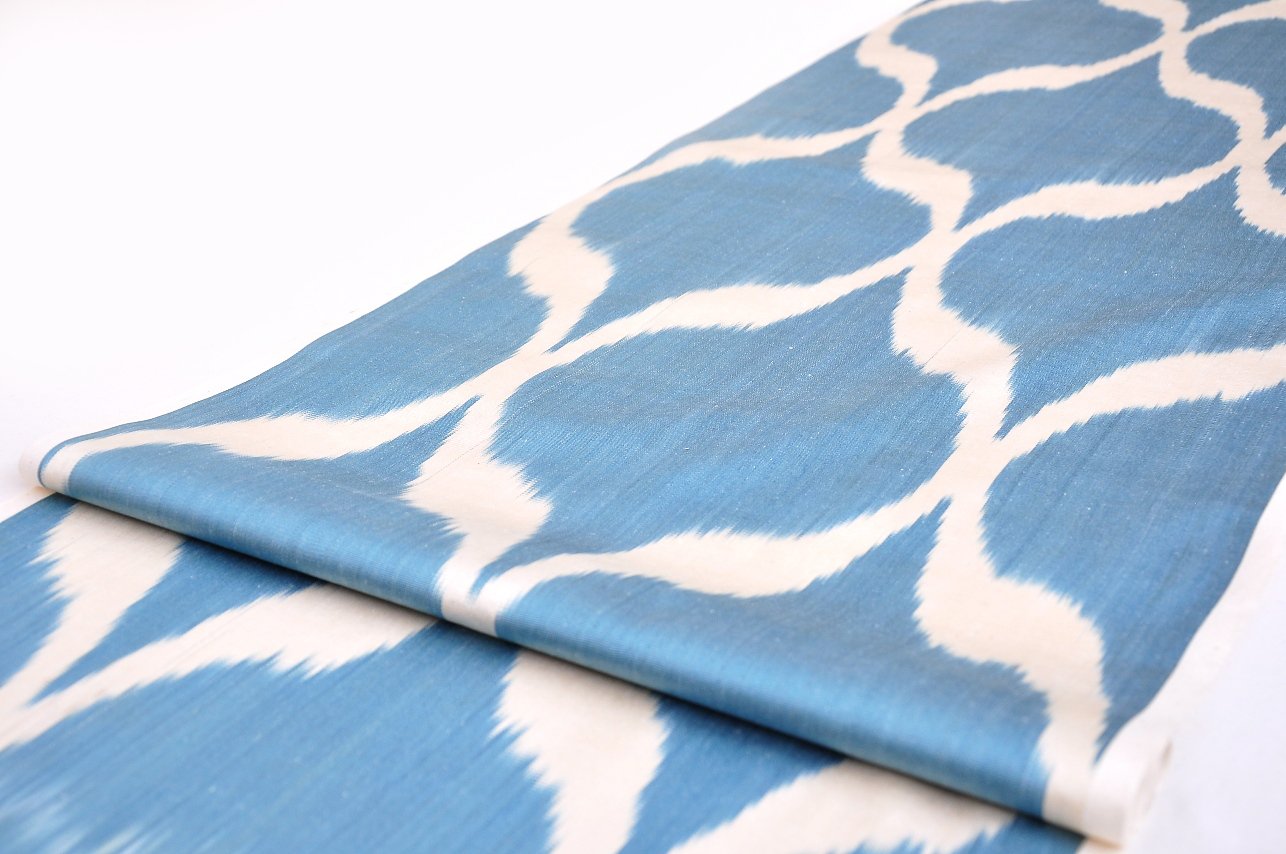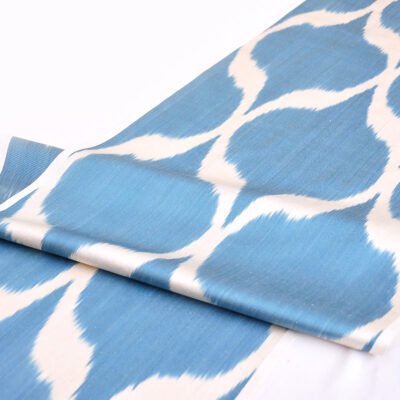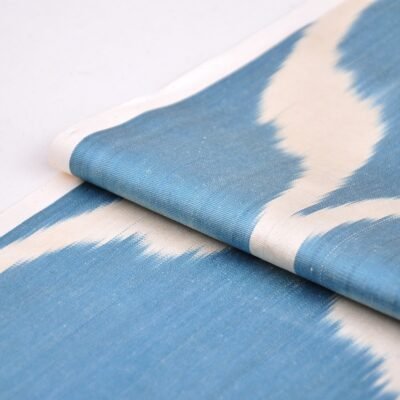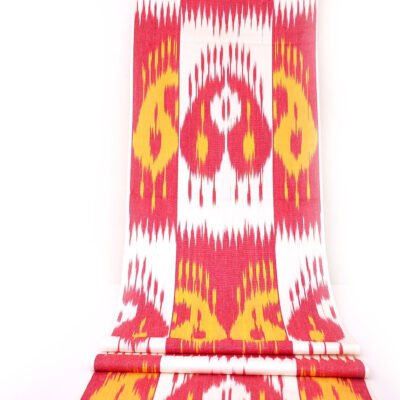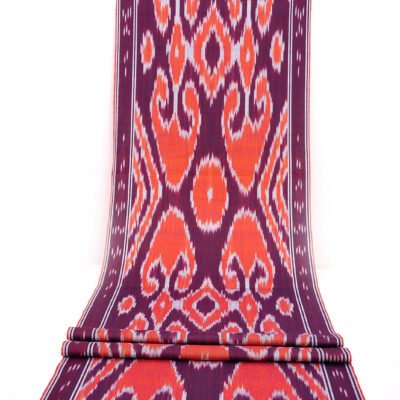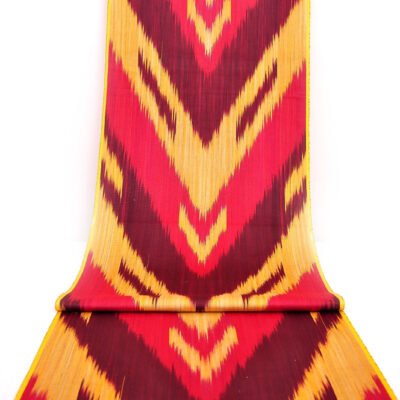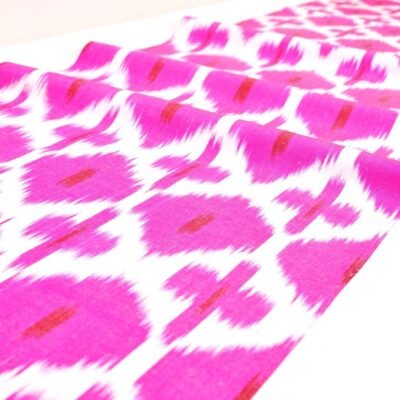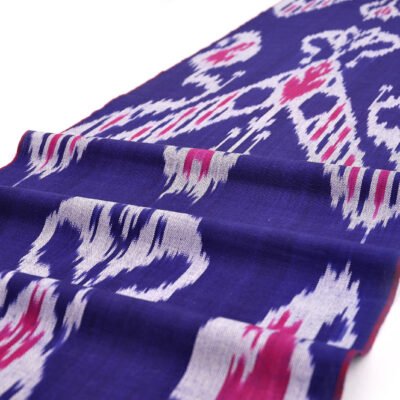Ikat Blue Diamonds Design Fabric
$16.00
Width of the ikat: 16 inch / 40 cm
Content: Handloom Ikat 50% Silk/ 50% Cotton
Cleaning and care: Hand wash at 30 C or dry clean
Usage: Upholstery, curtains, fashion, home decor
40 in stock
** Ikat Blue Diamonds Design Fabric **
This ikat fabric is an elegant piece of oriental craftsmanship. Ikat fabric is a heavy silk. Most of all it is wonderfully glossy and mild to the tough, that glosses softly in the light. Hence stylish luxurious appearance with its bold tribal pattern. Uzbeks call this fabulous fabric textile ‘khan atlas’ which literally means “royal silk satin”. In addition, this delicate fashionable best quality ikat fabric is pure natural silk and cotton. Traditional ikat weaving utilizes no chemical dyes or power looms. That is the reason why the impressiveness and durability of unstressed fabric are always beyond compare anywhere in the world. Probably, since unique Ikat design is the work of an individual. And he thinks passionately and feelingly about his every choice of colour as well as form in order to create a sympathetic composition. That makes IKAT special.
When you use ikat textures in your home décor project or fashion design, it’s apparent that you care about luxury craftsmanship. When it comes to using IKAT for home interiors, it is not only hinted that you highly appreciate handmade art, you are trendy as well. As fashion trends may come and go, ikat fabrics have always stood the test of time. Classic ikat fabric is authentic – woven, not printed. Besides, it possesses regal designs and vibrant colours in it. Handmade by a true master ikat weaver which updates your elegant interior.
“Need To Know About Ikat“
The narrow width of ikat fabrics makes it well-suited for table runners, pillow covers, as well as window treatments, bed scarves, and more. This playful mix of colours will be a fun addition to a range of decorating styles from traditional to modern.
The example of the handwoven Bokharan ikat texture may illustrate the complexities of labour in the silk weaving trade. Bokhara is one of several in which weaving is a common occupation. Most people specialized in weaving silk fabrics such as ikat. Non-migrant, “Old Bokharans” who claim Uzbek descent are living in both Uzbek and Irani-dominated neighbourhoods and they weave both pure silk and half-silk ikat fabrics. There is also an Abr-bandi or ikat-binding workshop for the production of ikat warps in a Tadjik neighbourhood. In a very mixed neighbourhood of mostly Tadjiks and Farsi that includes many all-silk ikat weavers, there is a dyeing establishment that employed both Jewish and non-Jewish dyers.
It is apparent that not only silk weaving but even such specialized activities as half-silk and all-silk ikat production is not limited to a single ethnic group. Weavers of Uzbek descent tend to produce cotton wefted half-silk fabrics. So did weavers who call themselves Tadjiks and “Old Bukharans” Irani and Farsi settlers are more likely to be the weavers of all-silk fabrics. While Jewish and Chala weavers make exceptionally light and fine silk kerchiefs and shawls.
| Weight | 0.06 kg |
|---|






